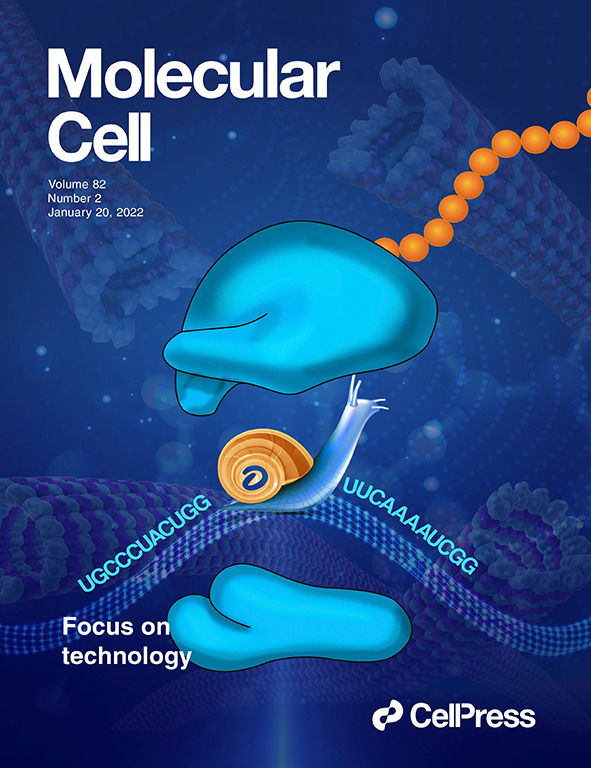在结肠癌模型中,异位表达IL-7膜结合形式的肿瘤细胞有效地产生抗肿瘤免疫反应。
IF 6.5
3区 生物学
Q2 BIOCHEMISTRY & MOLECULAR BIOLOGY
引用次数: 0
摘要
利用细胞因子和细胞因子基因修饰的肿瘤细胞诱导抗肿瘤反应的各种方法已被探索,但由于疗效问题和不良反应,其广泛应用受到限制。在这项研究中,白细胞介素-7在CT26结肠癌细胞上以自然分泌形式(sIL-7)和与B7.1型I跨膜蛋白(mbIL-7/B7)融合的膜结合形式表达。对所得到的细胞克隆的分析表明,异位表达的sIL-7和mbIL-7/B7在体外诱导CD8+ T细胞的扩增和激活以及增强抗肿瘤反应方面都具有相似的能力。虽然sIL-7或mbIL-7/B7克隆在培养中表现出相似的生长,但与sIL-7克隆或野生型CT26细胞相比,mbIL-7/B7克隆在小鼠中的致瘤性较低。具体来说,大约60%注射了mbIL-7/B7克隆的小鼠没有形成肿瘤。此外,80%拒绝mbIL-7/B7克隆的小鼠对CT26细胞产生了长期的全身免疫。对肿瘤肿块内免疫细胞的分析显示,与sIL-7克隆形成的肿瘤相比,mbIL-7/B7克隆形成的肿瘤中CD4+ T细胞、CD8+ T细胞和树突状细胞显著增加。这些结果表明,在肿瘤微环境中,与B7.1结合的膜结合形式的IL-7比分泌形式的IL-7更有效地建立抗肿瘤免疫。我们表达mbIL-7/B7嵌合体的策略有望成为肿瘤治疗的新方法,特别是在需要补充IL-7的病例中。本文章由计算机程序翻译,如有差异,请以英文原文为准。
Tumor cells ectopically expressing the membrane-bound form of IL-7 develop an antitumor immune response efficiently in a colon carcinoma model
Various approaches employing cytokines and cytokine gene–modified tumor cells have been explored to induce antitumor responses, yet their widespread application has been limited due to efficacy concerns and adverse effects. In this study, interleukin-7 was engineered for expression both as a natural secretory form (sIL-7) and as a membrane-bound form fused with the B7.1 type I transmembrane protein (mbIL-7/B7) on CT26 colon cancer cells. Analysis of the resulting cell clones demonstrated that ectopically expressed sIL-7 and mbIL-7/B7 both retained similar capacities to induce the expansion and activation of CD8+ T cells and to enhance antitumor responses in vitro. While the sIL-7 or mbIL-7/B7 clones showed similar growth in culture, the mbIL-7/B7 clone exhibited lower tumorigenicity in mice compared with the sIL-7 clone or wild-type CT26 cells. Specifically, the mbIL-7/B7 clone failed to form tumors in approximately 60% of the mice injected with it. Moreover, 80% of mice that rejected the mbIL-7/B7 clone developed long-term systemic immunity against CT26 cells. Analysis of immune cells within the tumor masses revealed significant increases in CD4+ T cells, CD8+ T cells, and dendritic cells in tumors formed by the mbIL-7/B7 clone compared to those formed by the sIL-7 clone. These findings suggest that the membrane-bound form of IL-7 with B7.1 is more effective than the secretory form in establishing antitumor immunity within the tumor microenvironment. Our strategy of expressing the mbIL-7/B7 chimera holds promise as a novel approach for tumor therapy, particularly in cases requiring IL-7 supplementation.
求助全文
通过发布文献求助,成功后即可免费获取论文全文。
去求助
来源期刊

Molecules and Cells
生物-生化与分子生物学
CiteScore
6.60
自引率
10.50%
发文量
83
审稿时长
2.3 months
期刊介绍:
Molecules and Cells is an international on-line open-access journal devoted to the advancement and dissemination of fundamental knowledge in molecular and cellular biology. It was launched in 1990 and ISO abbreviation is "Mol. Cells". Reports on a broad range of topics of general interest to molecular and cell biologists are published. It is published on the last day of each month by the Korean Society for Molecular and Cellular Biology.
 求助内容:
求助内容: 应助结果提醒方式:
应助结果提醒方式:


